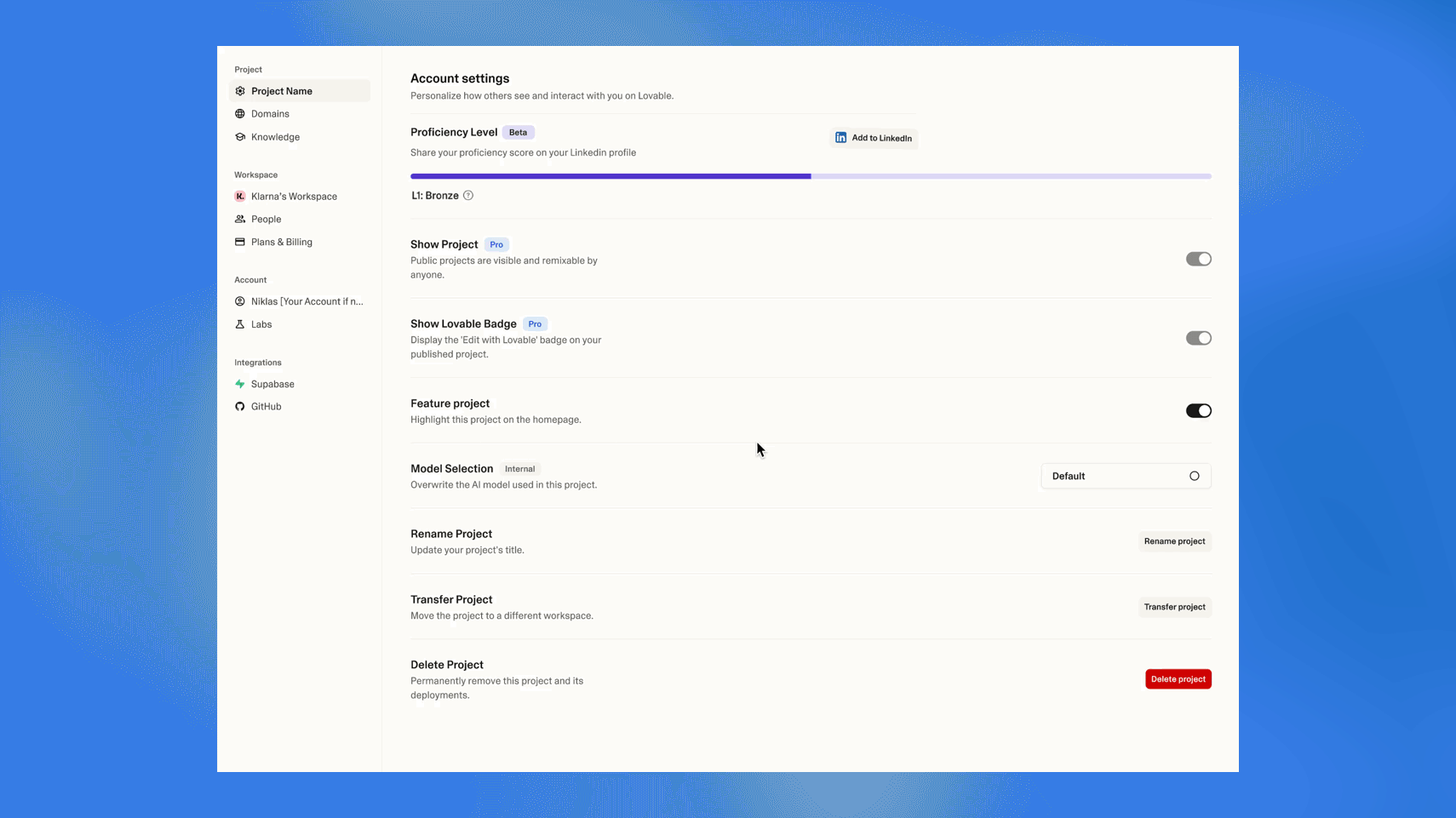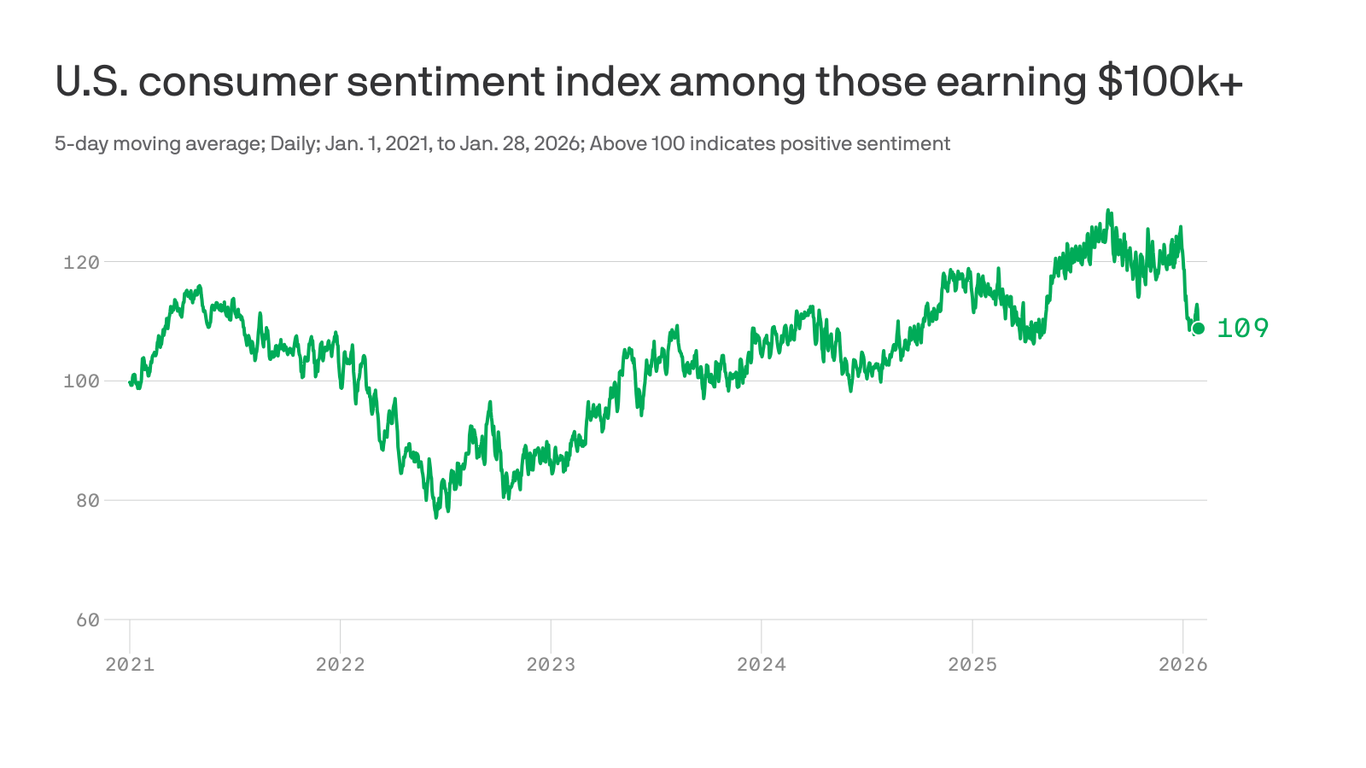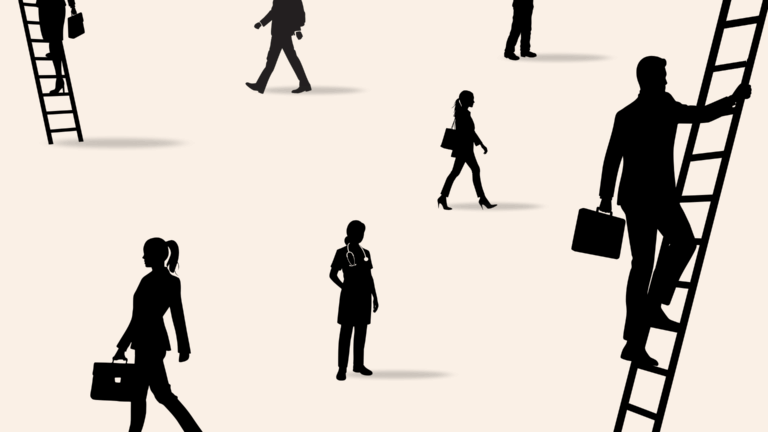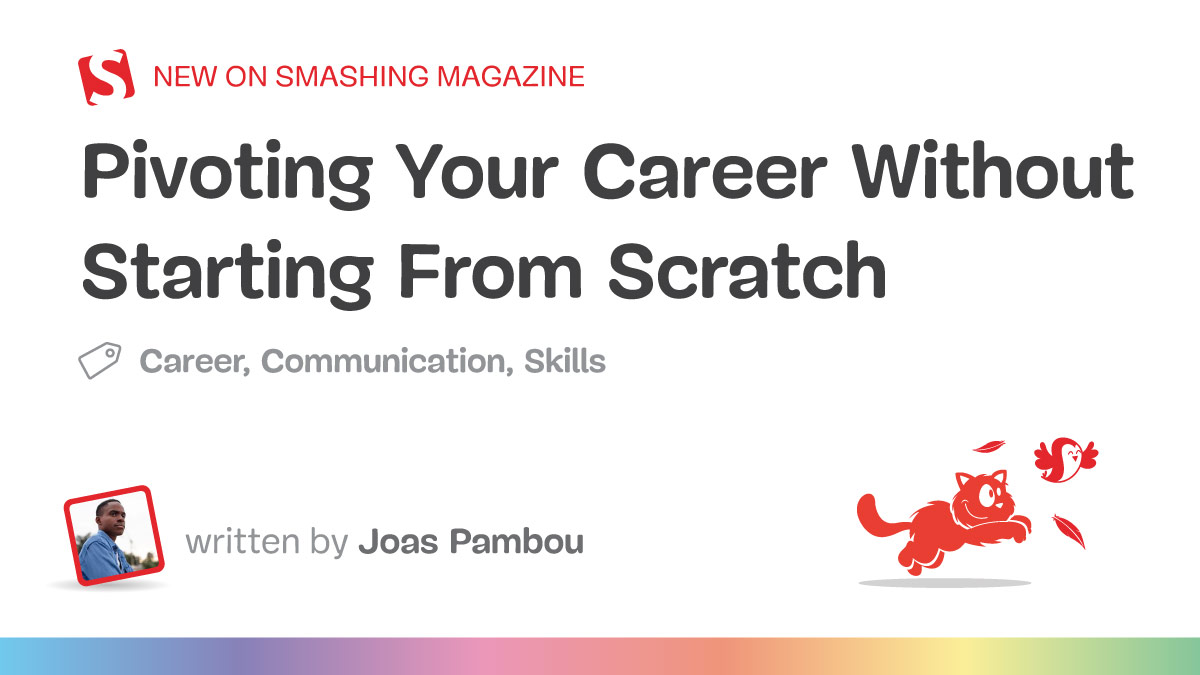Careers
Careers
[ follow ]
#remote-work #layoffs #job-search #labor-market #career-development #career-pivot #linkedin #ukraine #data-science
fromSlate Magazine
9 hours agoMy Job's Infuriating Rule Is Keeping Me From Being Twice as Productive
The union is great, don't get me wrong, but one side effect of having it is that there are massive, sometimes arbitrary and annoyingly vague, lines around what I can and cannot do in my role. This wouldn't necessarily be a problem, if most of the time the things I'm not allowed to do are required to be done by managers. Managers who are overworked, undertrained, and underpaid, and so don't have the time or brain space to address things I bring to them.
Careers
Careers
fromBusiness Insider
13 hours agoUkrainian soldiers battling a brutal winter are wrapping drone batteries in heated shoe insoles to keep them warm in flight
Ukrainian forces wrap drone batteries in heated shoe insoles to keep them warm in freezing temperatures, preserving battery voltage, range, and combat effectiveness.
Careers
fromBusiness Insider
1 day agoI learned I was pregnant a week after signing on to an AI startup. I shipped up until I gave birth - here's how I managed.
Rachael Fuller balanced launching a startup while pregnant, relying on family support and a stay-at-home partner, sacrificing hobbies to manage intense work demands.
fromMedium
1 day agoAn interview is not a dog show
Like you, I enjoy the finer things in life: sourdough bread, a smooth flat white, and an omelet with kimchi. I like traveling with my dog, staying somewhere nice, and - last but not least - keeping my EU visa valid. All of this costs money. To have and enjoy the good things in life, I need a full-time job (I say this with a heart that isn't exactly light). That means looking for one - and interviews are certainly the worst part of this.
Careers
Careers
fromBusiness Insider
1 day agoUkraine may get more than Gripen jets - Europe's top air-to-air missile is also on the table
Sweden may supply Ukraine with Gripen jets armed with Meteor long-range air-to-air missiles, significantly enhancing Ukraine's ability to engage Russian aircraft from standoff ranges.
Careers
fromBusiness Insider
2 days agoI couldn't find a job after college, so I became a nanny. When I started working with a wonderful family and making $30 an hour, all my fears melted away.
Choosing full-time nannying after struggling in the traditional job market provided financial stability, personal fulfillment, and improved work-life balance.
Careers
fromFortune
2 days agoDespite Airbnb CEO Brian Chesky and Steve Jobs praising micromanagers, a new survey ranks them among the most annoying coworkers | Fortune
Micromanagers and coworkers who steal credit are among the most hated coworkers, undermining confidence, productivity, morale, and team innovation.
Careers
fromFortune
2 days agoU.S. Olympic gold medalist track star went from $200,000-a-year sponsorship to $12-an-hour internship | Fortune
Olympic champion Lauryn Williams transitioned from high sponsorship income to low-paid internships and white-collar work due to scarce post-Olympic sponsorships and poor financial outcomes.
fromFuturism
3 days agoIf You're a Real Person Looking for a Job, the Flood of Fake AI Job Applications Will Make Your Blood Boil
And beneath the official jobs data is a growing accessibility crisis. More and more job seekers are finding themselves shut out of the labor market - not because there are no jobs to be had, but because torrents of AI slop are crowding them out of consideration. Case in point: a few months back, tech publication The Markup posted an opening for an engineer role.
Careers
fromBusiness Insider
3 days agoJust surviving the Arctic could be half the battle for NATO in a future war
SODANKYLÄ, Finland - Deep snow. Fleeting daylight. Wet clothes. Frozen weapons. Sub-zero temperatures. NATO soldiers training in Arctic warfare are learning that in a future conflict, fighting the enemy may be only half the battle. The other would be surviving the region's harsh winters. "The environment can be hard for someone who is not used to it," said Finnish Lt. Laura Lähdekorpi, bundled up and dressed in camouflage to blend in with the snow.
Careers
Careers
fromYourTango
6 days agoCEO Says Most Workers Lose Respect For A Boss Who's Not Willing To Talk About This Once Taboo Thing
Workers prioritize pay transparency over flexibility; employers must adopt transparent salary practices to remain competitive amid widespread inflation-driven financial strain.
fromSacramento Bee
5 days agoLooking for work in California? See 10 state jobs starting at $16K a month
What are the highest-paying state jobs in California? Chief medical officer | Limited, full time The chief medical officer is responsible for overseeing and managing all aspects of the medical program at the Veterans Home of California in west Los Angeles. Duties include making sure resident veterans receive the highest standard of medical care, following state laws and meeting specific needs of residents.
Careers
from24/7 Wall St.
6 days agoShopping for a Financial Advisor? Ask these 7 Questions
Choosing a financial advisor is one of the most important money-related decisions you can make, yet many people approach it casually or skip the vetting process altogether. With countless professionals offering financial advice, titles that sound impressive, and complex fee structures, it's easy to lose transparency in the process. In reality, the quality of guidance you receive can vary dramatically depending on who you hire and how they're compensated.
Careers
fromFortune
1 week agoComing soon: a lost generation of employee talent? | Fortune
A report by J.P. Morgan estimates that corporations can save billions of dollars a year by employing fewer people through automation. And, in fact, a 2025 study out of Stanford University has found that AI is already "beginning to have a significant and disproportionate impact on entry-level workers in the American labor market," with workers between the ages of 22 and 25 in the most AI-exposed occupations experiencing a 13 percent decline in employment.
Careers
fromForbes
1 week ago5 Small Actions That Quietly Increase Your Promotion Odds In Q1
Many professionals focus on big projects and headline achievements, but research shows that soft skills and visibility strongly influence promotions. LinkedIn data reveals that employees who combine hard and soft skills get promoted about 8% faster than those who focus only on technical abilities, and skills like communication, teamwork and problem solving are linked to promotions up to 11% faster. Regularly updating and showcasing your skills is also tied to faster advancement.
Careers
fromBusiness Insider
1 week ago12 high-paying jobs that don't need a college degree and are projected to grow over the next decade
Business Insider looked at wages and growth projections for jobs that usually need a high school diploma, its equivalent, or a postsecondary nondegree award. We then took the geometric mean of the ones that pay at least $75,000, based on 2024 median annual wage data, and are expected to need more workers, based on projected employment growth from 2024 to 2034. We then ranked the jobs, with the larger the geometric mean, the better the rank.
Careers
fromLondon Business News | Londonlovesbusiness.com
1 week agoA practical guide to personal track safety for new rail workers - London Business News | Londonlovesbusiness.com
Personal Track Safety refers to the rules, procedures, and behaviours that allow workers to operate safely on or near live railway lines. It's designed to minimise risks from moving trains, electrical systems, and environmental hazards. PTS is not just about memorising rules. It's about understanding why they exist and how they apply in real working conditions. When workers grasp this early, they're far more likely to act decisively and safely when situations change.
Careers
fromBusiness Insider
1 week agoTop Ukrainian drone commander says elite pilots hitting Russian troops at extreme close range
The leader of Ukraine's special drone branch said his operators are striking advancing Russian infantry at extreme close range, providing rare insight into how some of the country's best pilots are fighting. Maj. Robert "Madyar" Brovdi, the commander of the Unmanned Systems Forces, wrote in a statement on Sunday that his pilots have, over the last month, been engaging enemy troops at an average strike depth of 1.44 km, or 0.89 miles, from the line of contact.
Careers
fromBusiness Insider
1 week agoFinland is trying to poach top tech and AI talent from the US with 2-week visas and better work-life balance
The effort comes as competition for AI talent intensifies worldwide and tech workers in the US grapple with layoffs, burnout, and visa complications. According to BCG's 2024 talent tracker report, the US remained dominant in attracting AI talent worldwide. Already known for its tech scene, Finland, with a population of around 5.6 million, is positioning itself as a place where American tech workers can find a better work-life balance without sacrificing their careers - a notable contrast to the famous grindset of Silicon Valley.
Careers
fromBusiness Insider
1 week agoThe EU is probing Grok over its spreading of sexual AI images
The European Commission, the bloc's governing body, said on Monday that it had opened a formal investigation into X over the spread of illegal images, including possible child sexual abuse material, generated by Grok on the platform. The Commission said it would also extend an ongoing investigation into X's recommendation algorithm, with the regulator previously fining the social media platform $140 million over its "deceptive" blue checkmarks.
Careers
fromBusiness Insider
1 week agoA NATO fighter wing showed up for front-line air patrols with drone defenses for the first time
ŠIAULIAI AIR BASE, Lithuania - A Spanish fighter wing deployed to the Baltics for air patrol missions alongside anti-drone defenses for the first time, a reaction to growing uncrewed threats to European infrastructure. Spain's 15th Wing arrived at Šiauliai Air Base in December to begin a four-month rotation contributing to NATO's Baltic Air Policing mission, designed to protect the airspace around Lithuania, Latvia, and Estonia. The Crow counter-drone system came with it.
Careers
Careers
fromBusiness Insider
1 week agoWhy this NATO fighter wing says its American-made Hornets work well for front-line air patrols
Spain deployed EF-18M fighters and a 200-member detachment to Šiauliai, Lithuania, for a four-month NATO Baltic air policing rotation to conduct rapid intercepts of non‑compliant aircraft.
fromBusiness Insider
1 week agoWhen I got laid off, traveling felt like a bad idea. I'm glad I went on a short, affordable trip anyway.
I'm never one to say no to travel, whether it's for work, to visit a friend, or just because. In the first half of last year alone, I flew from New York to Palm Springs with friends, planned a London trip around a play I wanted to see, and saw Beyoncé's Cowboy Carter tour in Los Angeles. One of my friends was trying to sell me on one more big vacation - Scotland, maybe, or Paris - that we could take together
Careers
Careers
fromFortune
1 week agoWelcome to the 'skills mismatch economy': the shift from roles to skills is making your resume-and your job title-worthless | Fortune
Labor market faces a skills mismatch: workers signal generalist abilities while employers increasingly demand specialized, execution-oriented skills that remain scarce.
Careers
fromFortune
1 week agoDeloitte to scrap traditional job titles as AI ushers in a 'modernization' of the Big Four | Fortune
Deloitte will overhaul U.S. job titles and introduce job-family-specific titles and alphanumeric levels, effective June 1, 2026, while maintaining compensation and day-to-day work.
fromFast Company
1 week agoHow to get satisfaction from an unfulfilling job
If you're in an unfulfilling job or are dissatisfied with your work, it's possible to get a fresh start no matter what the season. In fact, there are a few strategies that can help you find meaning and enhance your experience even as you slog forward. A lack of fulfillment in your job can have intense effects. It can derail your motivation, your energy, and even your performance.
Careers
[ Load more ]





















